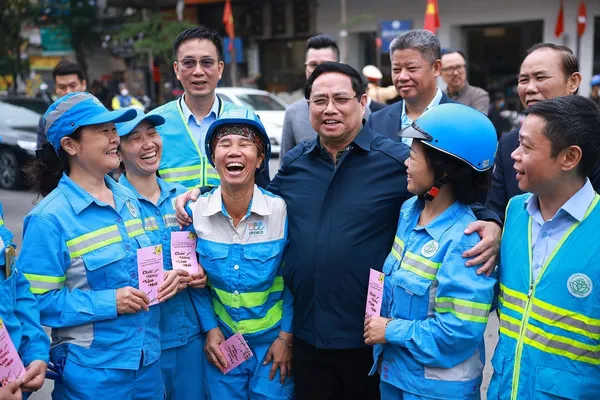 World
World

Emperor Akihito declared his abdication at a ceremony Tuesday, expressing his appreciation for the support of the Japanese people during his 30-year reign
.jpg)
|
| Japan’s Emperor Akihito (R) delivers his speech as Crown Prince Naruhito (2nd L) and Crown Princess Masako (L) attend the abdication ceremony at the Matsu-no-Ma state room in the Imperial Palace in Tokyo on April 30, 2019. Photo by STR / Japan Pool / AFP |
TOKYO- Emperor Akihito declared his abdication at a ceremony Tuesday, expressing his appreciation for the support of the Japanese people during his 30-year reign.
"I have performed my duties as the emperor with a deep sense of trust in and respect for the people, and I consider myself most fortunate to have been able to do so," the 85-year-old emperor, who will become the first Japanese monarch to abdicate in 202 years, said in his final speech at the Imperial Palace.
The emperor also expressed his gratitude to the people who accepted and supported him in his role as the "symbol of the state" as defined by the Constitution.
"I sincerely wish, together with the empress, that the Reiwa Era, which begins tomorrow, will be a stable and fruitful one, and I pray, with all my heart, for peace and happiness for all the people in Japan and around the world," he also said.
The emperor made the remarks after Prime Minister Shinzo Abe expressed his appreciation to him for "always sharing joy and sorrow with the people," at the event attended by around 300 guests, including imperial family members, Cabinet ministers, the leaders of both Diet chambers and Supreme Court justices.
On the occasion of the abdication, General Secretary of the Communist Party of Vietnam, President Nguyễn Phú Trọng sent a message to Emperor Emeritus Akihito. The Vietnamese leader thanked the emperor emeritus for his good sentiments towards Vietnam and its people, and praised the significance of the first visit ever by a Japanese emperor to the country in 2017 when he was on the throne. |
He will formally step down at midnight Tuesday and no longer engage in official duties. His elder son, Crown Prince Naruhito, 59, will accede to the throne the following day.
In 1989, Emperor Akihito became the first monarch enthroned under the postwar supreme law, which does not give an emperor any political power.
On Tuesday morning, the emperor performed his last rituals within the palace to ceremonially report his abdication to his ancestors.
Clad in a dark orange robe, the emperor paid a visit to sanctuaries within the palace precincts, including Kashikodokoro, a shrine dedicated to the Shinto sun goddess Amaterasu, from whom the imperial family is said to be descended.
When performing important rituals, a Japanese emperor dons a costume called "Korozen no goho" that dates back to the ninth century.
Braving the rain, a number of well-wishers gathered in front of the palace to mark the last day of Heisei, taking commemorative photos and hoping for a glimpse of members of the imperial family entering the palace for the rituals.
On Wednesday, the new emperor will inherit traditional regalia, called "Sanshu no Jingi," including the sacred sword and jewel, as proof of his ascension to the Chrysanthemum Throne in the "Kenji to Shokei no gi" ceremony from 10:30 a.m.
Later in the day, the new emperor will meet Abe and other representatives of the public for the first time since ascending the throne in the "Sokui go Choken no gi" rite beginning at 11:10 a.m.
In 2016, Emperor Akihito indicated his desire to step down in a rare televised video message, citing concern he might not be able to fulfill official duties due to his advanced age. The following year, Japan's Diet enacted one-off legislation enabling him to do so.
In modern Japan, an era name, or "gengo," is used for the length of an emperor's reign. The new era name, Reiwa, which the government translates as "beautiful harmony," will be the 248th.
The Heisei Era, meaning "achieving peace," commenced on Jan. 8, 1989, the day after Emperor Hirohito, posthumously known as Emperor Showa, died.
It was a period of peace with the country not involved in any wars, but it also saw decades of economic stagnation and numerous devastating natural disasters, including the massive 2011 earthquake and ensuing tsunami in northeastern Japan that triggered the Fukushima Daiichi nuclear crisis.
While on the throne, the emperor often travelled with the empress to areas hit by calamities. The couple also travelled to sites linked to World War II at home and abroad to pay tribute to those who lost their lives during the war, which Japan fought in the name of his father. Kyodo




